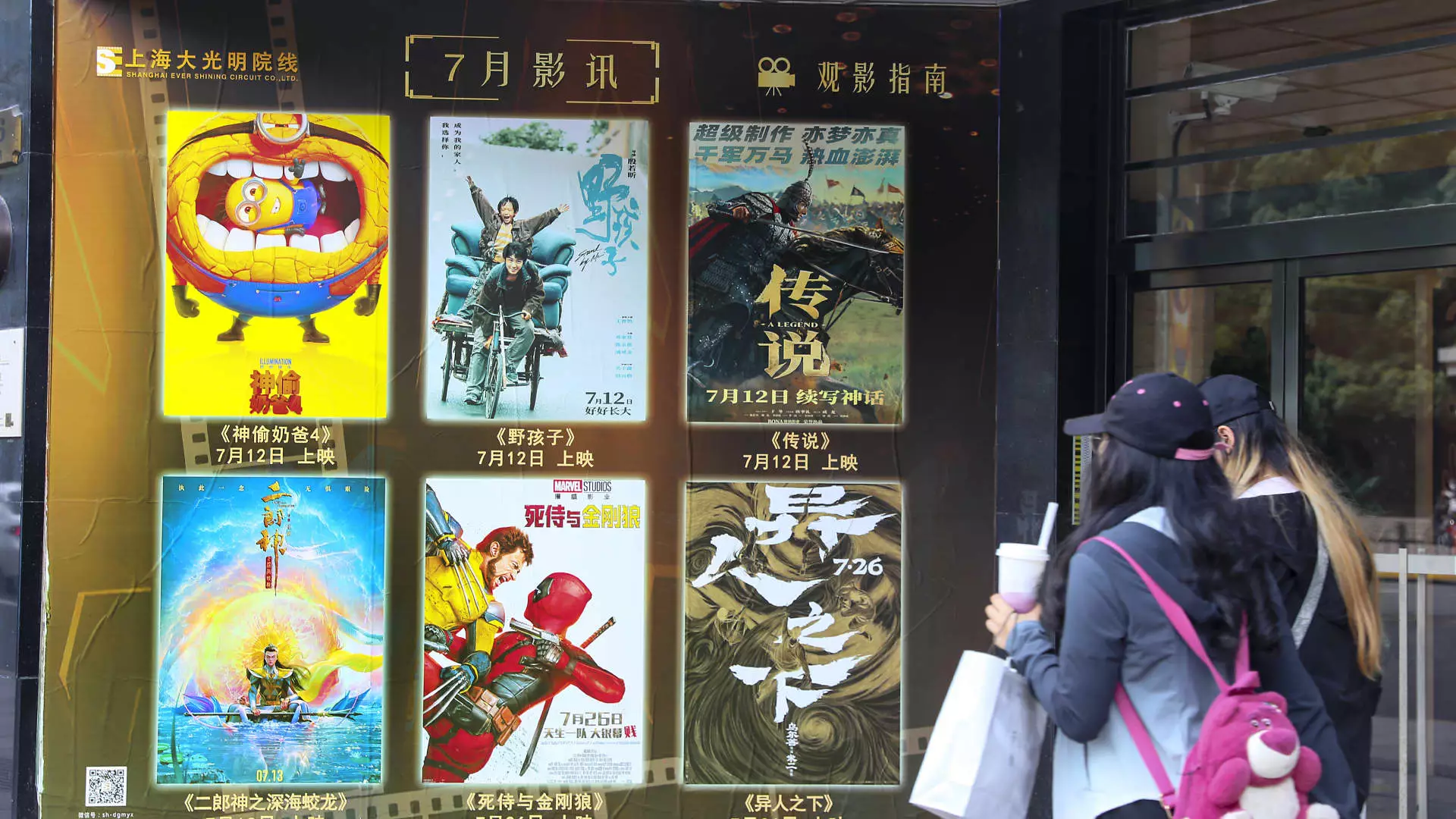As the reverberations of President Donald Trump’s trade war continue to unfurl, Hollywood finds itself at a crossroads, caught between the shifting tides of international diplomacy and the stark reality of dwindling box office returns. With the escalation of tariffs on Chinese imports, the consequences for the American film industry are nothing short of dire. The retaliatory actions from China, notably the restriction on Hollywood film imports, threaten to unravel the very fabric of a once-thriving relationship that American studios had taken for granted. The glamour of the silver screen is dimmed by the looming shadow of geopolitical strife and economic uncertainty.
The volatility experienced in the stock market is indicative of deeper systemic issues within Hollywood’s economic structure. Companies like Disney and Warner Bros. Discovery have watched as their stocks flickered downward, reflecting more than mere market apprehension; it signifies an industry struggling to recalibrate its strategies amidst a changing global landscape. As Hollywood executives grapple with the implications of reduced access to the Chinese market, it becomes increasingly clear that the profitability once assured by overseas box office sales is becoming a relic of the past.
China’s Growing Cinema Dominance
The allure of the Chinese box office has long been a beacon for American filmmakers, a place where blockbusters could soar to astronomical heights. However, the reality is painful: as China’s film industry matures and local productions thrive, Hollywood finds itself on the back foot, scraping for dwindling audience attention. Audiences now lean toward homegrown narratives, significantly reshaping cinema consumption patterns. Ann Sarnoff, former CEO of Warner Bros., notes that where Hollywood films once dominated, their relevance has diminished drastically, leading to an economic quagmire for U.S. studios.
The expiration of the U.S.-China Film Agreement in 2017, which allowed for the guaranteed release of a set number of American films, further exacerbates the predicament. This disintegration of a previously advantageous arrangement illustrates the precariousness of the international film market. The narrative that U.S. films could effortlessly capture the Chinese audience is swiftly turning into a cautionary tale, leaving behind the starlit roads once traveled by franchises like Marvel and Disney. The contrast could not be clearer: with the rise of domestic titles like the record-breaking “Ne Zha 2,” it’s evident that U.S. studios may no longer hold the monopoly they once believed was theirs by right.
Financial Reckoning and Uncertainty
The current economic climate painted by the trade war reflects a larger narrative of insecurity enveloping the industry. As the dollar weakens, the impact on international box office returns becomes both an opportunity and a danger. Hollywood’s continued struggle to penetrate the Chinese market means that films are now being projected without foreseeable financial support from what was once a reliable revenue stream. The fallout of this trade war raises critical questions: how will Hollywood adapt to a future where its international market share is uncertain and the Chinese consumer increasingly prioritizes local content?
Hollywood’s gamble was predicated on an understanding that the global box office could effectively cushion the financial blow of domestic disappointments. Yet, with resounding voices proclaiming that U.S. studios now predict ominous zero returns from the Chinese box office, the industry is faced with a profound reckoning. The diminishing significance of international markets is ushering in an age where studios must rethink their production and marketing strategies in ways previously unimaginable.
Hollywood was once synonymous with magic and allure, but the current narrative is tinged with anxious apprehension. Entertainment and cinematic storytelling, the hallmark of American culture, are becoming increasingly entangled in a web of geopolitical strife. How to navigate this minefield is the question on every industry leader’s mind, and the answers appear far from clear as the affection once afforded to the golden age of cinema now contrasts sharply with the grim realities of a divided global marketplace.


Leave a Reply